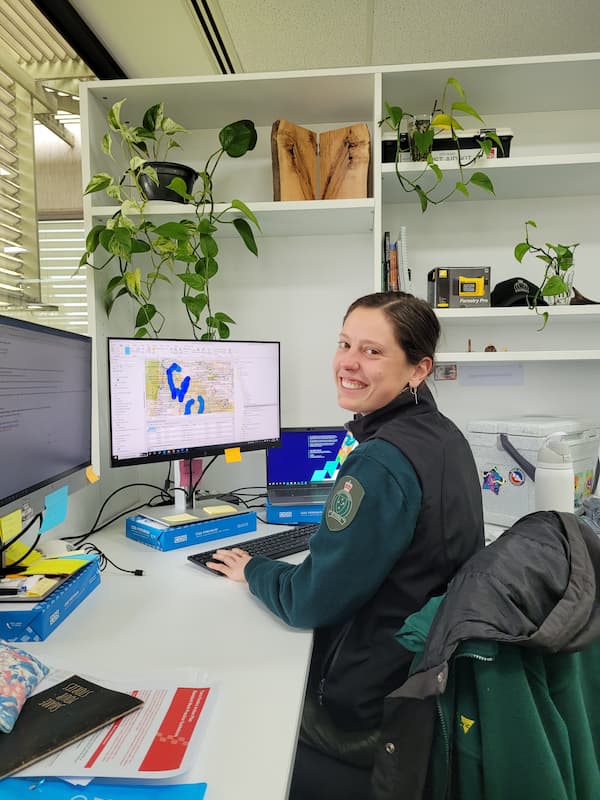
As National Science Week encourages students to investigate how science can help species survive, DEECA biodiversity officer Jess Peart believes there is no better place to see and do science than in the state’s forests.
‘People have such a strong love for their forests,’ she enthused.
‘We are so lucky to be surrounded by the forests we have. They are amazing in the values they hold and the variety of those values.
‘People get so much out of them, whether it’s just sitting under a tree and being in a forest, their biodiversity, the mountain bike tracks that run through them and the resources they provide.
‘But there is more to that story than just a tree growing in a forest. Our forests are complex, there is so much we know and so much we don’t.’
Jess credits her experiences as a child for giving her a passion for forests and a desire to protect them so they can remain as healthy as possible for future generations.
Jess credits her experiences as a child for giving her a passion for forests and a desire to protect them so they can remain as healthy as possible for future generations.
‘We just grew up in the forests,’ she laughed.
‘Every weekend, Dad would take us somewhere out bush or outdoors.
‘Instead of heading to Queensland for school holidays, we would go to the forests at Marysville.’
She admits there were regular complaints about the holiday destination, but her interest in the environment grew.
After graduating with a Bachelor of Science in Zoology and Animal Biology, Jess worked with the Environmental Non-Government Organisation, Earthwatch.
‘The experience just made me passionate to study more and learn as much as I could. So I did my Masters in Ecosystem Management and Conservation at Melbourne University, which gave me a deeper understanding of how forests are managed.’
Applied knowledge
Jess brought this knowledge firstly to her work as a tactical planner/biodiversity officer with VicForests and then to DEECA a year ago in her role as a biodiversity officer.
Her role involves carrying out values checks before forest and fire management works take place.
‘I get a list of works that are planned for the upcoming years and then carry out an initial desktop assessment using various mapping and planning systems,’ she explained.
‘This program shows up the many values in the forest, for example flora, fauna, rainforest communities, waterways and lists them against the planned works.
‘The desktop check doesn’t mean we have found all the values.
‘We will do field assessments with other biodiversity officers and operational planners and walk the list of works to verify the desktop assessment, but I also make other sightings of other species of interest.
‘We then work out ways we can manage the operations to ensure there is as little risk to those values as possible.’
Jess’s favourite forest is the mountain ash forests at Powelltown.
‘It’s the first landscape I started working in, and I spent time there as a kid, so it's always interesting returning there as an adult and still having that fascination.’
Find out more
Go to the National Science Week website to find out more about what's on and how you can get involved
Learn more about senior forest ecology project officer Michael Ryan
Page last updated: 06/08/24